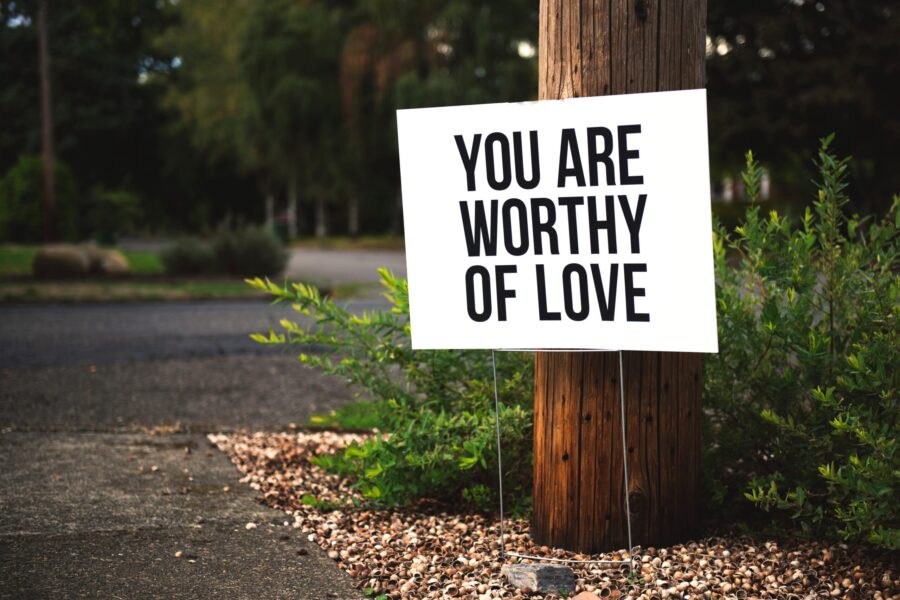The Best New Year’s Resolution? Be Kinder to Yourself
It’s no secret that New Year’s resolutions can lead to feelings of failure. Defeat. Self-criticism. According to a psychiatrist’s advice column in The Washington Post, it’s easy to get caught up in a spiral of self-condemnation and guilt which leads to social isolation and disconnection from others.
What do we do? Double down on our resolutions? Get an accountability partner? Work harder to achieve our goals?
Christopher W.T. Miller, MD, a psychiatrist and psychoanalyst practicing at the University of Maryland Medical Center and an associate professor at the University of Maryland School of Medicine, suggests we focus our energies a different way: on developing a kinder inner voice.
How we talk to ourselves matters
It changes how we feel about ourselves, and in turn, how we act. “A kind and accepting stance toward oneself can decrease psychological distress and increase resilience to difficult situations,” Miller says.
It changes how we interact with others. While self-criticism and low self-esteem frequently lead to social isolation, “treating ourselves well is connected with positive feelings toward others and gratitude about life,” he adds.
Cultivate a kinder inner voice
Many of us drive ourselves to perform to our max. We also tend to compare ourselves with others. Both habits leave us frequently feeling “less than” when we don’t measure up in some way, and self-criticism follows.
“It can be easy to forget that our self-worth should not be a relative quality,” Miller urges. Not relative to our own performance. Not relative to the performance of others.
Once we become aware of the messages inside our heads, we can change them. “Self-compassion allows for a more balanced perspective to emerge on our struggles, qualities and circumstances. This might allow us to ‘give ourselves a break’ instead of fueling that demanding inner voice that’s never satisfied, no matter how hard we push,” says Miller.
Some of us labor under demanding inner voices that come from our childhood experiences. One of Miller’s clients realized how her high standards were linked to those of her parents: “Without perfection, there was no love. I ended up seeing myself as a flawed person who could never earn their affection.”
When we’ve listened to such harsh voices for so long, we may need to have another, more gentle one “be modeled for us to give ourselves “permission” to develop self-kindness.” As one patient commented to Miller, “It’s easy to deal with criticism, since I expect it. It’s confusing dealing with kindness. Over time, I realized there are other ways for me to treat myself. This work has provided me with a kinder inner compass.”
Miller encourages this transformational work: “By broadening how we think of ourselves, we can see beyond the ideal life that has failed to materialize,” acknowledging the positive impact we have on the world just as we are.
Self-compassion leads to compassion for others
Showing kindness to ourselves overflows in a kinder attitude toward others. It begins in the brain. One region of our brain, the anterior insula, is “activated when we notice our own emotional and bodily state, and is involved in patterning feelings of connectedness, cooperation and love when we interact with others.”
The more we pay attention to our own emotional states and the more this region of our brain is activated, “the more it helps recruit other brain areas involved in empathy and pro-social behaviors,” Miller says.
So what are small steps we can take to feel better and relate to others in healthier ways in the new year?
Practice gratitude
Being grateful affects your body physically, Miller says, “by decreasing activity in some brain areas that generate negative emotions and by lowering certain inflammatory blood markers (which can signal stress).”
Gratitude also affects your emotional wellbeing and relationship to others. “Being grateful not only increases life satisfaction and lowers stress, it also can curb envy and materialistic attitudes, lessening the need to compare ourselves with others or seek endless accumulation,” Miller adds.
Forgive others
Holding on to resentments may make you feel powerful and “morally superior,” but it comes at a cost. It blocks our genuine understanding of others. It locks us in a negative mindset. Not only that, but it physically harms us, says Miller, as “holding onto resentment and polarized views can have an adverse impact on health, while exercising forgiveness can enhance well-being.”
Forgive yourself
We often find it easier to extend grace to others than to ourselves. Miller acknowledges that “life experiences can shape us to believe the worst about ourselves, feeling we’ve done irreparable damage to the world that requires lifelong penance.”
However, this cycle can be broken. We can start by “acknowledging there is more to us than our flaws, and whatever shortcomings we might have do not define us, nor do they erase the inherent worth we all have.”
As we take steps to think about ourselves in more truthful, healthier ways, Miller encourages, “the dependence on external validation lessens, self-kindness can become a much more reliable and effective asset.”
Read the full article here.
Miller, Christopher T.W., MD. “Your toughest mental health goal? Being kinder to yourself.” The Washington Post, 6 Jan 2024, https://www.washingtonpost.com/wellness/2024/01/06/self-compassion-tips-empathy-gratitude-brain/.
Photo by Tim Mossholder on Unsplash



